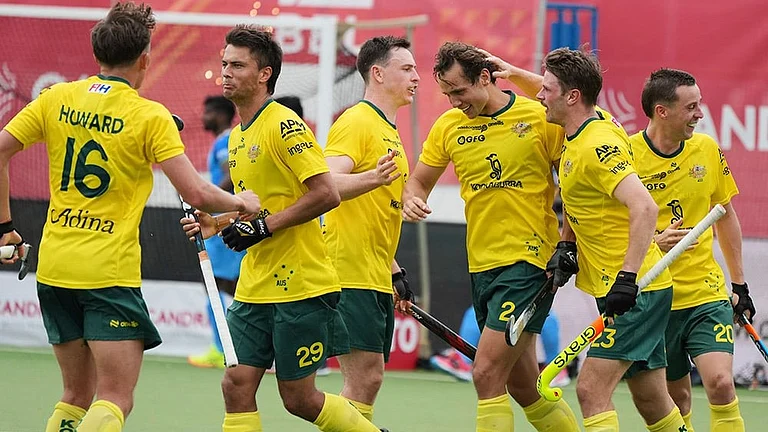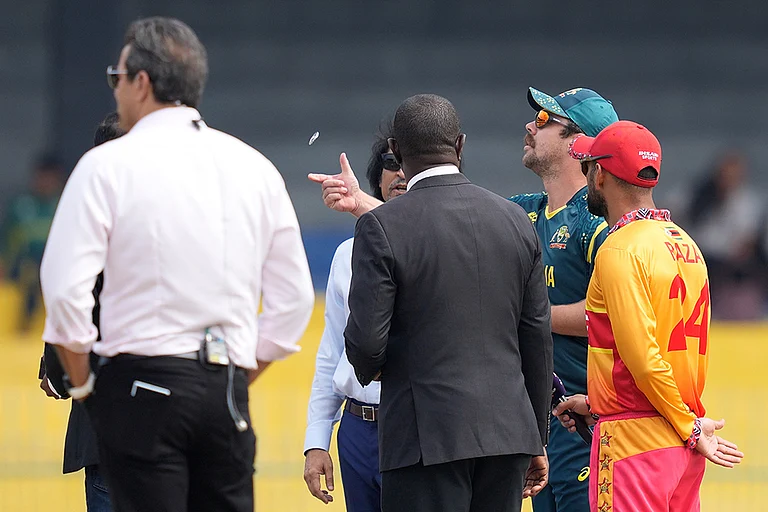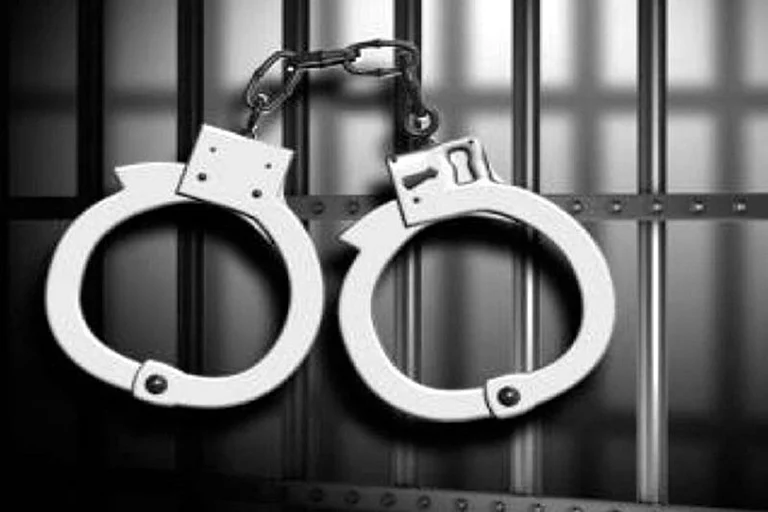A few years ago, in Delhi, I saw a father who had given up his two-month-old daughter for adoption to an orphanage, meet his child after 35 years. It was an electric moment. The two didn’t exchange any word—the girl had been adopted by a European family and didn’t speak any Hindi, which was the only language the father understood—but the way they looked at each other, overcome with emotions, you could tell that they were quietly making up for lost time.
But let me rewind a bit and place this reunion in context.
I had come in touch with Arun Dohle and Anjali Pawar who were facilitating the reunions between many adoptees living outside India and their biological parents in the country. Over the past 15 years, they have helped 55 adoptees from all over the world trace their biological parents in India. The two agreed to take me along for one of the reunions, which happened in a gurudwara in Delhi. The father was a Sikh, which is why he insisted that their first meeting happen at a gurudwara. His daughter had been brought up as Christian. This was that reunion.
The father just kept looking at his daughter awkwardly for minutes on end and she, with a lot of hesitation, tried to make contact, by touching him, stepping forward to embrace him. She went on to visit his house and was welcomed by everyone in it. She may not have found answers to all her questions but, thanks to Dohle and Pawar, she had taken a huge stride towards finding a closure.
Three years later, as I got in touch with them, Dohle and Pawar told me they now have a website to help adoptees from India search their parents. This is how visitors to adopteerightscouncil.org are greeted: ‘Are you an Indian adoptee in search for answers about your adoption, your story, and your Indian roots? Are you looking for your Indian family? Wondering if they can be traced? We were in the same #crib and, thanks to intercountry adoption, our identities were wiped out’.
Dohle knows the system well enough to help others. He’s been through it himself. The India born-German national fought a legal battle for 17 years to be able to see his biological mother. In fact, his case, which went right up to the Supreme Court of India, paved the way for more adoptees to trace their roots.
“I wanted to search for my roots when I was 14. But it was not possible then. I resumed my search in ’93. That’s the first time I came to India. I went to my orphanage and had the experience that most adoptees have—they were not helpful in sharing my adoption records,” Dohle says.

After 17 years of litigation, in 2010, he finally was able to access his records and meet his mother. “It’s a basic question every human being has, isn’t it, to know where you come from, where you belong,” he says. Dohle, who runs the child rights NGO ACT (Against Child Trafficking), along with Anjali Pawar, who works as a consultant for the NGO, now work round the year to help other adoptees trace their roots.
But even after all these years, having come to know the system inside out, their work hasn’t become any easier. The process is fraught with obstructions. The biggest bottleneck is in getting adoption records from the orphanages, for which the two have often had to approach courts.
Even after getting a favourable verdict, there’s the question of how to get the adoptee meet their biological parent. In a society that looks down upon single mothers, women often prefer to keep children born out of wedlock hidden from the world. They often give their children over to orphanages, from where the adoptees are taken in by families from within the country and outside. After all these years, many mothers, for obvious reasons, don’t want to accept their past.
“In a recent case we had an adoptee, Sulekha, come to us looking for her mother. After a long struggle we managed to trace her mother. As in most cases we found that the child was born out of wedlock. I went up to her and told her that her daughter was looking for her. The mother didn’t want her family to know about it. So we kept the meeting private. It was a cathartic experience for both,” Anjali says.
She feels that meetings held privately help people looking for closure much more than reuions between parents and children in public. “In private, both parent and child can cry as much as they want. They can embrace each other without inhibitions. It’s healing for them,” says Anjali, who has organised many such meetings at her own house.
Outlook contacted Sulekha to understand what the process meant to her. Sulekha, who was adopted by a family from the Netherlands, says that she grew up with a lot of questions about her adoption. In what circumstances was she given up? Did she have any brothers or sisters back in India? Did the family have a history of any hereditary diseases? Did she resemble her biological mother? How was her mother doing? Did she ever think about Sulekha?
“I completely understand that we had to meet my mother in secret. If the truth came out, it would put her in great danger. But I do think it’s a pity that after so many years and after such a long search, it had to be like this. It makes me sad that there seems no other way we could do this. Even though the meeting happened in secret, my mother understood what happened and we made a connection. It was a very important moment and it has given me a lot of peace,” Sulekha told Outlook.

David Kildendal Nielsen with his biological mother during their reunion in Chennai; and (right) Arun Dohle
But not every such reunion happens in the dark. There is the case of David Kildendal Nielsen, who was adopted by Danish parents when he was about 16 months old from an orphanage in Chennai. Thanks to Dohle and Pawar’s efforts, David met his mother in October 2019. “It was very emotional but also a big relief. I had been searching for close to seven years from February 2013 until November 2019, but it was during my last trip to Chennai that I found her,” David recalled, admitting that he had given up all hope after potentially exhausting all possibilities. “‘Seeing her’ is very difficult to put into words. So many times, I have imagined what she would look like. Then suddenly she stands before me. Forty years of separation and then we were re-united; try and explain that,” he added.
If there’s anything about this process that affects him, Dohle says, it’s how adoptees expect him to help them for free. “A large number of adoptees get angry about that. That really takes a mental toll. People expect me to do this for free. Some of the adoptees are not even ready to fight their own cases. They expect me to raise funds for them, fight authorities and legal battles on their behalf. It gets crazy sometimes.”
Dohle and Pawar have solved this problem by proposing a financially sustainable model for adoptees who want to trace their roots. On their website they state that in over 10 years searching in India, they’ve found that the real cost of such searches is at least Rs 17 lakh.
“The time and costs involved are incredible and we provide aftercare/advice even after the seven-year period,” he said. So they’ve come up with a seven-year-long subscription model. “From our side, we have to gather necessary information such as name and address of the Indian family within 24 months. If we fail, you can stop the subscription...,” he added.
But then, what drives these people to go to such great lengths to find their biological family? Shouldn’t adoptees, who otherwise may have been living in dire circumstances, be thankful for growing up in a financially secure environment?
The answer to this question can be found in the testimonial of one Linzi Ibrahim on Dohle’s website. “Out of a small group of adoptees who were adopted from Sri Lanka to NSW (New South Wales), Australia: three have committed suicide, three have had a few failed suicide attempts, three have a history of self-harm, two have been in jail, many experience mental and emotional distress.
Linzi, an adoptee herself, also wrote that beneath the facade of “perfectly happy” faces are people hiding their pain. “There are adoptees who think they are completely unaffected by their adoptions. But sometimes a traumatic event affects them more than it would affect a non-adopted person. We are taught to be grateful for losing our families. We are expected to fit in and ignore our past,” she wrote, adding that most of the adoptees are unaware that the root cause of their lies in the fact that they were adopted. “Why would we think that adoption could be the cause of so many of our problems when it only brings positivity?” she added, laying bare the deep psychlogical wounds that sacr the hearts of many adoptees.
ALSO READ: Adoption Is A Giant Monkey Puzzle
Dohle recalls at least four adoptees who were driven to suicide by their trauma that came from a sense of displacement. Of one person he says, “She first agreed to search through us. Then finally she travelled alone to the city where her biological family lived. The orphanage stalled her attempts to seek her adoption records. Three months after her return to Belgium she jumped out of her apartment window.”
The emotional burden of someone growing up looking inexplicably different from those around them can push people to their limits. Dohle knows this fully well. He was a well-to-do financial consultant based in Germany. He had a family of his own. Until he became obsessed with the idea of searching for his roots.
“Adoption is a very serious matter. It changes the identity of the child permanently, severs all ties they could have with their community. We should see adoption as a form of slavery. In my own case, my personal life took a hit. My marriage fell apart. I don’t have a place to live in Germany. I really wanted to find my biological family and I put a lot of energy into it. Over time I saw many people turn against me,” Dohle says.
When asked whether the meeting with his mother gave him a sense of closure, or is he still looking for justice, Dohle says, “I am looking for justice. I want compensation. What happened to me shouldn’t happen to others. Justice can happen in India and I’m trying to ensure that it happens to everyone like me. I don’t want to see other adoptees suffer.”
(This appeared in the print edition as "In Search of Closure...")
ALSO READ



























